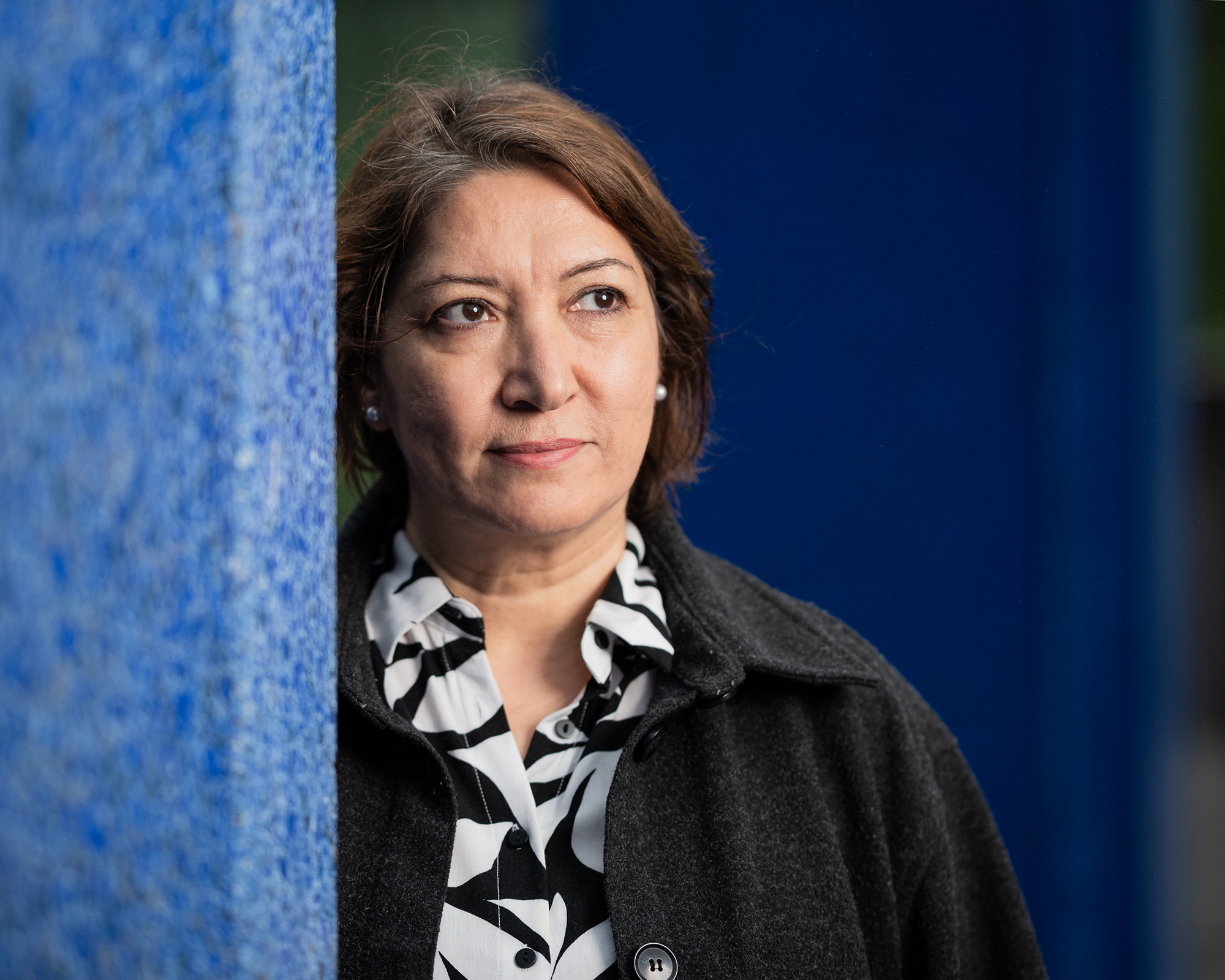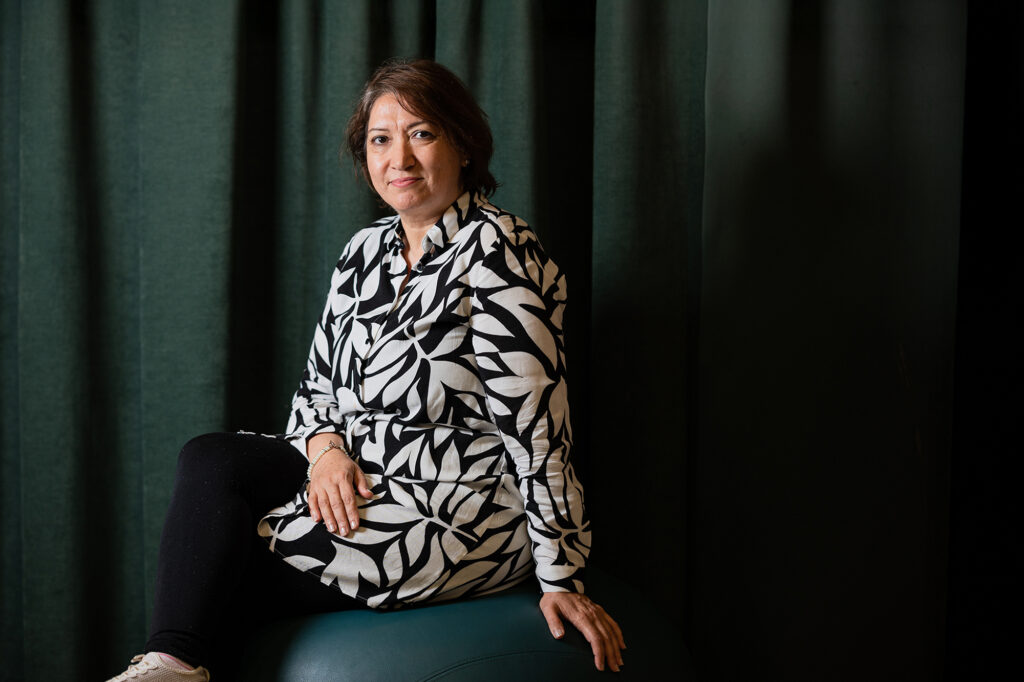“I don’t want you near my wife” – Speaking for women’s rights still meets resistance in Syrian community

Syrian women are still pressured into defined roles. “It’s not the religion—it’s how some leaders teach it,” says Jaujok. “If a woman steps outside these lines, she’s seen as disloyal.”
Seblewongel Tariku
Sercan Alkan
Published 19.06.2025 at 11:23
Updated 19.06.2025 at 11:23
“For about a week, everyone felt happy and satisfied. But then the reality kicked in.”
This is how Nidal Jaujok summarizes the feeling among the Syrians both at home and in the diaspora, after the collapse of the Bashar al-Assad regime in Syria in December 2024.
Jaujok is a Syrian Kurd teacher and feminist activist, who fled Assad’s regime to Finland nine years ago with her husband. She leads an association called Nujin Kurdi Naiset Ry, which empowers women, and is a member in Syrian Women’s Political Movement (SWPM). Jaujok can be recognized as one of the leading voices of Syrian women in Finland.
The joy about the end of 24 years of Assad-rule and 13 years of civil war was especially great among women, Jaujok says. But quickly the initial hope gave way to disappointment.
“We expected justice and fairness. Instead, a transitional authority sparked acts of personal revenge in parts of Syria.”
After Assad: women push for real change
After Assad’s removal, Syria entered a new phase with a transitional government. According to Jaujok, the system still lacks justice and real inclusion. The political space remains controlled by a narrow group, which has already reignited the ethnic and sectarian tensions.
For women, changes so far have been largely symbolic. A few hold official government roles, but they remain excluded from actual decision-making.
Syrian women paid a heavy price during the war, Jaujok says. That should not be forgotten.
“Women raised families alone and rebuilt peace in the community while men fought, were jailed, or fled. Yet now, the same men are back in power, and women are sidelined.”
Jaujok argues that the current constitution fails to protect women and children.
It, for example, does not protect women forced into marriages with foreign ISIS and other extremist fighters. Their children can’t get citizenship because, according to the Syrian constitution, Syrian nationality only passes through the father. This leaves many children stateless.
In stark contrast, the transitional government recently granted nationality to some foreign fighters, many of whom fought against Assad, because their countries refused to take them back, or they face criminal charges.
The Syrian Women’s Political Movement continues to push for a gender-sensitive constitution and accountability for crimes by both the regime and the opposition.
Many Syrian women still shy away from the public participation
The forefront of the feminist resistance are now Syrian women in exile in countries like Finland, Jaujok says. Much work remains, both in public and in private spheres.
One of Jaujok’s main efforts is raising awareness about domestic violence.
“Many Syrian women see men’s anger as something temporary, that should never be addressed.”
Through community meetings, she is trying to show that politics begins at home: with rights, equality, and changing mindsets. But the emotional burden of speaking out remains heavy, especially among uneducated women, due to stigma and tradition.
Economic independence is another key development. In Syria, men traditionally controlled finances. In Finland, women have their income through the opportunity to work. It’s a big mental shift.
“Now they’re thinking about their future, saving, investing, even buying homes.”

In public participation, barriers are equally great.
According to Jaujok, majority of Syrian women in Finland stay away from political activism due to a lack of experience, cultural taboos, and community pressure.
The fear runs deep, she said. Syria never had real political space in the past 50 years. Opposition meant prison, and women faced extra stigma.
But a clear shift can already be seen, she says.
Many Syrian women are now engaging in local organizations, community initiatives, and political conversations. Some have joined Finnish political parties; a few even have been elected to municipal roles.
They’re inspiring others, showing that women can lead and be heard, Jaujok says. It shows that change is possible.
But challenges remain. Traditions, stereotypes, and certain religious interpretations still pressure women to stay within defined roles. Women’s rights are also often misunderstood.
“Some think we’re encouraging women to rebel against their husbands or divorce.”
Jaujok has experienced these attitudes herself. Once he was hosting her young friend in Finland. She helped him to settle, gave guidance, connected to support.
But when the friend’s wife arrived to Finland, he cut ties. The reason was that Jaujok worked with women’s rights, the friend told: “I don’t want you near my wife.”